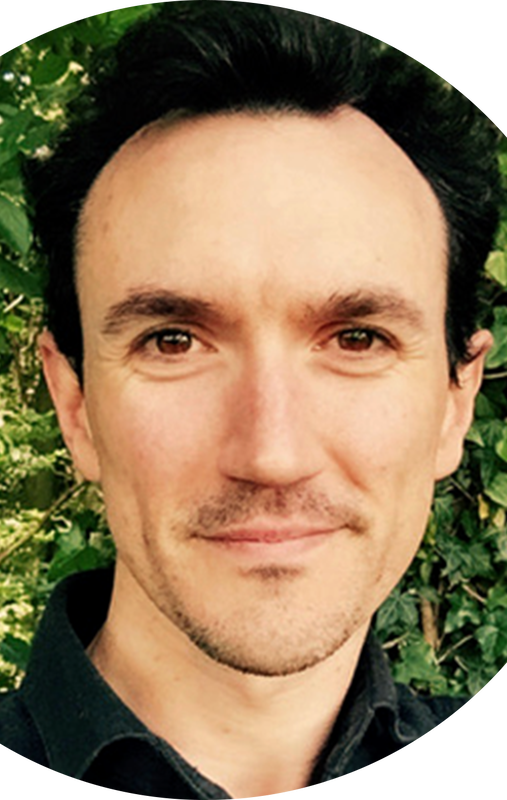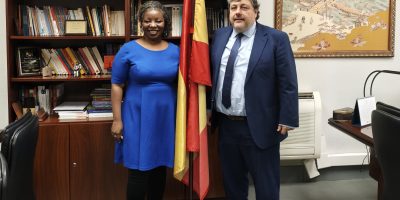If the third of the FernUni Postgrad Academic Writing workshops is anything like its earlier iterations, Trainer Theo Best can expect a motley mix of doctoral candidates, researchers, admin staff and even regular Master’s students at the full-day affair on Thursday 12 May. “Normally the participants are a high B2/C1 and above,” explains Theo, referring to the Common European Framework (CEFR) language competence scheme. “They have experience writing papers in English, and may have already published in an international journal, or will do so soon.” With the stakes high, the budding academics are eager to polish up their prose, and therefore they sign up for such workshops in droves.
Right on track towards certification
Although the workshop will be given by Write English, a private Cologne-based firm, it is in fact being held under the auspices of the North Rhine Westphalia Hochschuldidaktik programme in which a network of universities collaborate in promoting teaching and academic excellence. Theo’s workshop counts for six credits (6AE) in the Professional Teaching Competence in Higher Education track (Professionelle Lehrkompetenz für die Hochschule) or eight credits (8AE) in the Qualification for Professional Fields in Business and Society (Qualifizierung für Berufsfelder in Wirtschaft und Gesellschaft).
Participants therefore gain not only information and insight on academic writing for their immediate needs, but they can also choose to parlay that knowledge into credits for a tangible certificate down the road.
The right kind of writing
Meeting the expectations of international, English-speaking journal editors is a key issue to be addressed in the workshop, as is how to boost one’s chances of publication. Participants can expect to learn the techniques they need to write well-structured papers which communicate the value of their research with impact and clarity. Alluding to Robert Kaplan’s 1966 work on cultural thought patterns, Theo says: “Participants often experience interference from their cultural background; it may be that academic texts are written and structured in different ways depending on their first language and culture.”
Broadly, Kaplan argued that cultural differences permeate the way in which rhetoric is realised in various language groups: intentional indirectness in oriental languages; purposeful parallelism in Semitic languages and deliberate digressions in Romance languages and Russian.

Cultural thought patterns impact second-language writing (Kaplan, 1966, p. 15)
Theo concurs that sentence complexity and the tendency to digress within paragraphs can be attributed to first language transfer. Since a linear development is typically expected in English academic texts, the upcoming workshop will address these challenges head on.
“It’s always a revelation for me (and the students) when they grasp what it means to write cohesively,” comments Theo. “The workshops I offer focus on the tools and techniques students need to create flow in their texts. This can be a matter of where in a sentence certain kinds of information should be placed, or how often it’s acceptable to repeat your key words. Ultimately, a shift takes place in the participants’ view of themselves not only as (potential) experts in their fields, but also as writers with a clear understanding of their readers’ expectations,” he adds.
The best trainer in town

Simply the best: Theo Best of Write English hosts English academic writing workshops for the FernUni
Theo Best’s holistic view of developing strong academic writing skills perhaps stems from his multidisciplinary background: a BSc in Psychology, an MA in Philosophy and a further MA in Creative Writing, majoring in poetry. “I draw on my experience in each of these worlds — sciences, humanities and the arts — to help my participants write effective texts which also captivate their readers. Whatever their discipline, I strongly believe researchers have a duty to be great communicators too.”
Theo goes on to say that he has seen the fruits of this at the presentation skills workshops he occasionally runs for the FernUni. “It’s always rewarding to see the participants take to the stage and really connect with their audience through their body language, eye contact and voice. It takes courage!”
That motley mix of postgrads and staff members joining the 12 May workshop can expect the practical tips and professional advice to be punctuated by good-natured Brit humour. Theo hails from the south of England but upped sticks and settled in the Rhineland in 2019 — “Just in time to get my residency before Brexit sank its teeth in!” he quips.
Click here for more information on Theo’s workshop.





Leave a Reply